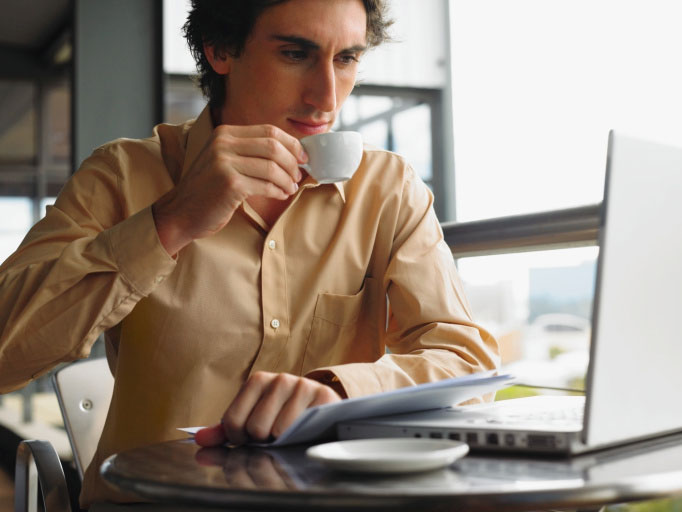Anxiety seems like a simple condition to understand. But unfortunately there are numerous misconceptions about what it means to live with anxiety, control anxiety, and ultimately cure anxiety. Anxiety is seen as fear, and in reality anxiety is so much more than that.
Those that live with anxiety suffer each and every day, and many seek out tips and strategies to help them stop anxiety as quickly as possible.
The Coffee Myth
It is this desperation to cure anxiety that has led to many people cutting out coffee from their diets—or trying, at least. Even psychologists have claimed that coffee is one of the first things you should remove from your diet as soon as you have anxiety, because caffeine is a stimulant, and stimulants excite the nervous system.
The problem is that there isn’t any evidence that normal amounts of caffeine create anxiety, and what is perhaps most fascinating is that there is a very small amount of evidence that caffeine may actually reduce anxiety.
The Science on Coffee and Anxiety
If a doctor or psychologist suggests reducing coffee from your diet, you should do it. And coffee in excess—over 300mg a day, or several shots of caffeine in a short period of time—may create anxiety, especially on an empty stomach.
But most people do not drink that much caffeine in a day, and there is currently no real evidence that lesser amounts of coffee affect anxiety. No studies currently show that anxiety is caused by small doses of caffeine, and it seems that the belief is due to the assumption that caffeine causes jitters.
What is perhaps more interesting is that there is some (although admittedly only cursory) evidence that caffeine can reduce anxiety. Studies have shown:
Caffeine Improves Mood
Studies have shown that low doses of caffeine appear to improve mood. It has been shown as a potential dietary way to fight some of the symptoms of depression, and can have a similar effect on those with anxiety.
Cognitive Health
Studies have also linked caffeine to improved cognitive clarity, the ability to recall facts and focus, and more. For those with anxiety, cognition can actually play a role in comfort, and someone thinking more clearly is going to experience fewer anxiety symptoms.
Energy
Anxiety is excess energy, so adding energy may not seem like a good thing, but anxiety also causes a significant amount of fatigue. Energy to get through your day is valuable, because an active day is actually an anxiety coping tool.
There are also benefits to routine, to enjoying the taste of coffee, and more.
Other Considerations About Coffee
Now, there are many other issues at play when it comes to drinking coffee. First, many people add sugars and creams to their coffee, or take caffeine through energy drinks. These may contribute to anxiety in their own way.
Second, some people find coffee doesn’t sit well with them, and indigestion and intestinal discomfort can contribute to stress. Not sleeping can also lead to trouble controlling anxiety, so late night caffeine can be problematic.
No one is recommending that you start drinking coffee to cure anxiety. But the idea that somehow drinking coffee is causing your anxiety appears to be a myth that is simply spread around on the internet. If you think that caffeine is contributing to your anxiety, try a few weeks without it, but if you can’t seem to live without your cup of coffee in the morning, it is unlikely you need to be that concerned about what it does to your anxiety levels.



